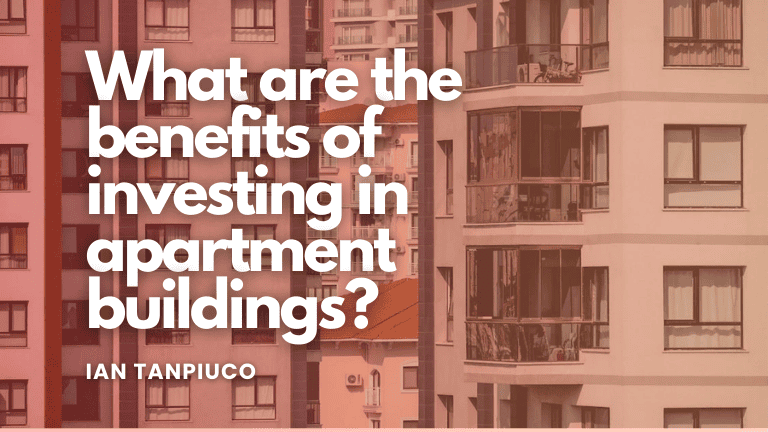
What are the Benefits of Investing in Apartment Buildings?
Investing should be a priority, especially in this economy. Over the past few days, we have been discussing investing in apartment buildings. Today, we will talk about the benefits of investing in apartment buildings, some additional points, and precautions to consider.
Benefits:
1. Steady Income: Apartment buildings offer stable income or cash flow compared to other investments. Rental income is predictable, and even if some tenants leave, you still have a fixed income based on the number of occupied units. This makes managing finances easier.
2. Appreciation: Like gold, real estate is a sound investment because it tends to appreciate over time. Apartment buildings, in particular, can increase in value, allowing investors to benefit from property appreciation.
3. Tax Benefits: Investors can enjoy tax benefits, such as deductions for depreciation and mortgage interest, which help reduce taxable income.
4. Economies of Scale: Managing multiple units in one building is more efficient and cost-effective than handling separate properties. This makes it easier to scale your investments.
5. Demand: Housing is always in demand, especially in growing urban areas. This ensures a stable rental market.
6. Leverage: Investors can use financing options to buy large properties with less money upfront.
Additional Arguments:
1. Diversification: Investing in apartment buildings helps diversify your portfolio, spreading risk across multiple properties.
2. Inflation Hedge: Real estate serves as a hedge against inflation because property values and rental income tend to rise over time.
3. Forced Appreciation: You can increase the value of apartment buildings through renovations and improvements, unlike other investments that rely only on market conditions.
Precautions:
1. High Initial Costs: Apartment building investments require significant upfront capital for purchase, renovations, and maintenance.
2. Market Risk: Property values can fluctuate based on the economy and housing trends, affecting both income and resale value.
3. Management: Managing tenants and maintenance can be time-consuming, and hiring property managers adds to the costs.
4. Vacancy Risk: If there are vacancies, rental income decreases, affecting your cash flow.
5. Interest Rates: If you use financing, rising interest rates can increase borrowing costs, reducing your profitability.
These factors make apartment buildings a strong option for building long-term wealth, but it is important to consider the risks involved.
Check my other blogs

Ian Tanpiuco is an ESL and virtual assistant. With a decade of experience, he has become an expert in his field. Dedicated to helping others achieve their goals, Ian works tirelessly in the classroom or as a virtual assistant.

